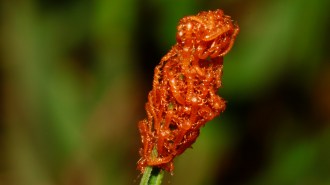Insulin-suppressing hormone discovered
Limostatin stops fruit flies, and perhaps people, from producing the glucose-regulating protein

Named for Limos, the Greek goddess of starvation, the newly discovered hormone limostatin suppresses insulin production and secretion.
Jean Fortunet/Wikimedia Commons (CC BY 1.0)







